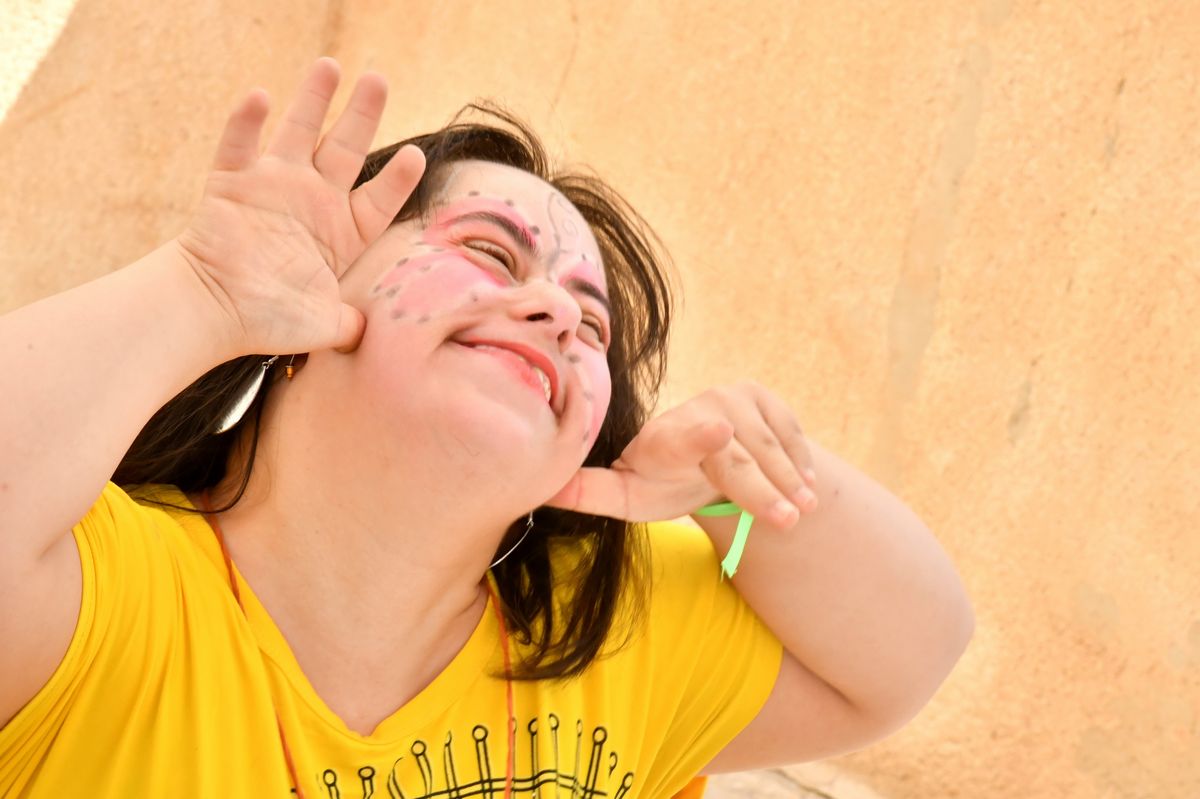common behaviors Down Syndrome
Children with Down syndrome may have a variety of unique behaviors. It is important to provide positive encouragement to children and remain patient in order for these talents and skills to grow.
Unique talents
All people with Down syndrome are gifted with talents. It could be poetry, creative art or even reading other people’s emotions. People with Down syndrome want to be seen both as a part of a group and as unique with their own talents. Be sure to encourage children without putting pressure on them.
You can help children find ways to promote his or her talents. For example, if he or she is interested in music, it may help to have instructions from an appropriate music teacher.
Self-talking
Self-talking, or talking to yourself, is very common in children and adults with Down syndrome. This behavior often makes families worried. Try not to worry! Self-talking is normal and also serves a very useful purpose.
Self-talk plays an important role in cognitive development. It also helps children coordinate actions and thoughts.
Children can also use self-talk to think out loud and process emotions. You may hear a child with Down syndrome talking to his or herself as they process their daily events.
Children may use self-talk for entertainment. Many people with Down syndrome seem to enjoy retelling favorite stories or movies to themselves during their free time.
The majority of the time, self-talk is socially appropriate. If it’s not, this is something to talk about with the family and doctor. It is important children understand self-talk should be done in private.
Communication
Communication skills are important to get along with other people. Some people with Down syndrome can be easily understood by others. Other people with Down syndrome find it hard to communicate. Most people with Down syndrome are in the middle of this range. If a child has trouble with his or her speech, there are many ways they can communicate nonverbally:
- Facial expressions
- Gestures
- Signing
It is important to be patient in social settings in order to allow children with Down syndrome to think and talk. To help, ask one direct question at a time, rather than several open-ended questions.
Visual memory
Most people with Down syndrome have an amazing memory for people, places and past events. This can often be described as “photographic memory.”
- Children may make lists of facts they are interested in such as favorite movie actors or songs.
- Children also may easily remember where things are or places they have visited. This is helpful when getting lost or helping others find their way.
- Children may also use this skill to organize their personal belongings. For example, they might make libraries of CDs or DVDs and will know if anything is moved.


0 Comments